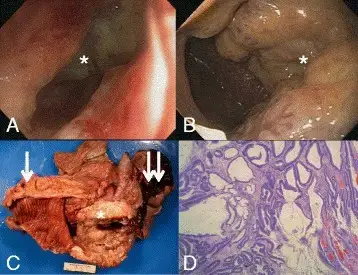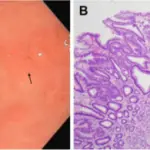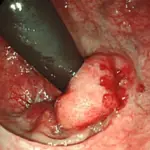Hereditary non-polyposis colorectal cancer is a condition in which the tendency to develop colorectal cancer is inherited. “Nonpolyposis” means that colorectal cancer can occur when only a small number of polyps are present. In families with HNPCC, cancer usually occurs on the right side of the colon.
What is the Pathology of Hereditary Non-Polyposis Colorectal Cancer?
The pathology of hereditary non-polyposis colorectal cancer is:
-Etiology: The cause of hereditary non-polyposis colorectal cancer is an inherited mutation or abnormality.
-Genes involved: hMSH2.
-Pathogenesis: The sequence of events that lead to hereditary non-polyposis colorectal cancer are inherited mutations of DNA mismatch repair MMR genes responsible for the correction of DNA mismatches, such as base substitution mismatch and insertion-deletion mismatch.
-Histology: The histology associated with hereditary non-polyposis colorectal cancer shows that these cancers are more often mucinous, poorly differentiated, signet ring cells with lymphocytic infiltrate, or rimmed by a germinal center producing a lymphoid reaction.
How does Hereditary Non-Polyposis Colorectal Cancer Present?
Patients with hereditary non-polyposis colorectal cancer typically are all genders at age range before 40 years. The symptoms, features, and clinical findings associated with hereditary non-polyposis colorectal cancer include: rectal bleeding, stomach pain , weight loss and fatigue.
How is Hereditary Non-Polyposis Colorectal Cancer Diagnosed?
Hereditary non-polyposis colorectal cancer is diagnosed by sigmoidoscopy, colonoscopy, and biopsy.
How is Hereditary Non-Polyposis Colorectal Cancer Treated?
Hereditary non-polyposis colorectal cancer is treated by surgery.
What is the Prognosis of Hereditary Non-Polyposis Colorectal Cancer?
The prognosis of hereditary non-polyposis colorectal cancer is good. The 5-year survival rate in patients with hereditary nonpolyposis colorectal cancer HNPCC is estimated to be approximately 60%, compared with 40-50% for sporadic cases.



